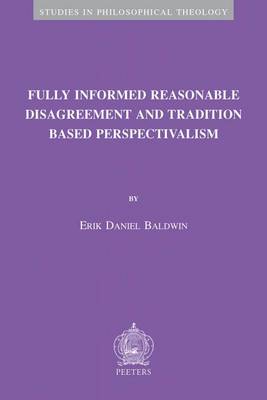Studies in Philosophical Theology
1 primary work
Volume 56
Fully Informed Reasonable Disagreement and Tradition Based Perspectivalism
by Ed Baldwin
Published 31 August 2016
Apparently, people who are aware of the relevant facts and experiences
in a belief forming situation, sometimes reasonably disagree about
whether to believe and why. This study argues that such disagreements
are possible, and that some purportedly fully informed reasonable
disagreements are genuine, including cases involving disagreement about
which beliefs about God are reasonably taken to be properly basic, given
the facts of religious diversity and cases in which phenomenologically
similar religious experiences properly ground a variety of religious
beliefs. Drawing on the work of Alasdair MacIntyre, it also argues that
Tradition-Based Perspectivalism - roughly, the view that foundational
beliefs about what is reasonable to believe and why, are tradition-based
and perspectival in nature, originating in and appropriately grounded
only from the perspective of some tradition of inquiry or other - is
true, and that its truth provides additional support for the claim that
fully informed reasonable disagreement actually occurs.
in a belief forming situation, sometimes reasonably disagree about
whether to believe and why. This study argues that such disagreements
are possible, and that some purportedly fully informed reasonable
disagreements are genuine, including cases involving disagreement about
which beliefs about God are reasonably taken to be properly basic, given
the facts of religious diversity and cases in which phenomenologically
similar religious experiences properly ground a variety of religious
beliefs. Drawing on the work of Alasdair MacIntyre, it also argues that
Tradition-Based Perspectivalism - roughly, the view that foundational
beliefs about what is reasonable to believe and why, are tradition-based
and perspectival in nature, originating in and appropriately grounded
only from the perspective of some tradition of inquiry or other - is
true, and that its truth provides additional support for the claim that
fully informed reasonable disagreement actually occurs.
